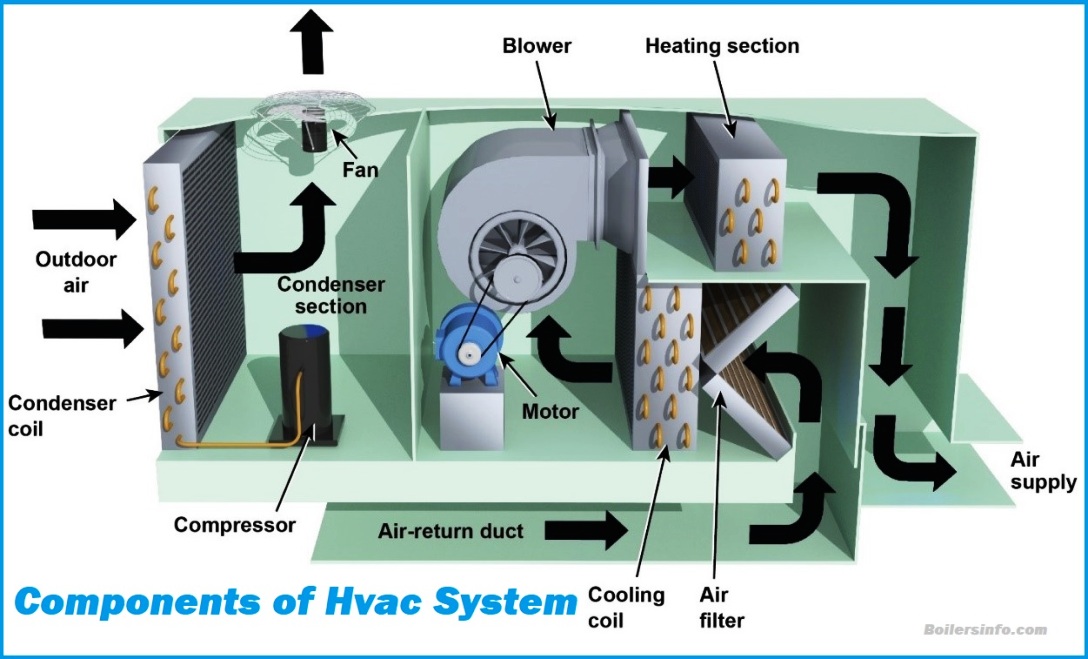The Effects of HVAC on Well-Being: Why it Is Important More Than You Realize
In terms of maintaining a clean home environment, the role of your HVAC system often goes ignored. Many people consider heating and cooling only in terms of ease, but the truth is that an optimally functioning HVAC system substantially impacts indoor air quality and overall health. Neglected heating, ventilation, and air conditioning systems can lead to a host of health issues, from allergies and respiratory problems to greater susceptibility to sickness. Learning how your HVAC system works and how to maintain it is crucial for safeguarding your health and ensuring a healthy living space.
In this article, we will examine the various ways HVAC affects your health and why it is significant more than you may assume. From recognizing the signs that indicate your system needs urgent attention to learning about eco-friendly options and indoor air quality improvements, we will guide you through the essentials of HVAC maintenance and care. By taking preventive steps, you can create a safer, more comfortable home while also enhancing your HVAC system's durability and efficiency.
Heating, Ventilation, and Air Conditioning System Maintenance Essentials
Adequate maintenance of your HVAC system is vital for ensuring optimal performance and longevity. Consistent servicing helps to detect possible issues before they increase into costly repairs. Homeowners should set up a routine maintenance schedule that consists of a thorough inspection and tune-up at a minimum of once a year, preferably before the warm or air conditioning season starts. This preventive approach not only boosts system efficiency but also promotes indoor air quality, benefiting your overall health.
A well-maintained HVAC system lowers energy consumption, which translates to lower utility bills. Regular tasks such as changing air filters regularly can significantly impact the airflow and efficiency of your system. Neglecting these small but essential tasks can lead to increased wear and tear, resulting in more regular breakdowns and repairs. Keeping https://goheronow.com/why-regular-hvac-maintenance-is-essential-for-your-home/ on your system's performance and understanding the signs that it may need attention can prevent more significant issues in the long run.
In parallel to routine maintenance, understanding your particular HVAC system type is crucial for effective care. Different systems have varying requirements and service needs. Familiarizing yourself with these details will enable you to adhere to recommended maintenance practices, ensuring that your HVAC system remains smoothly and efficiently for years to come.

Improving Interior Atmospheric Quality
The quality of interior air is crucial for maintaining a wholesome living space. HVAC units play a key role in regulating interior air quality by controlling airflow, moisture levels, and temperature. Effectively functioning HVAC systems can remove out pollutants, allergens, and various harmful particles from the air, making it crucial to focus on regular upkeep and air filter changes. Homeowners should be diligent about their HVAC units, ensuring they are equipped with high-quality filters that capture dust, pollen, and additional irritants thoroughly.
Moisture levels significantly affect indoor air quality, impacting not only contentment but also health. An HVAC unit fitted with a dehumidifier can reduce excess humidity, reducing the growth of mold, dust mites, and additional allergens. Conversely, too dry air can result in respiratory issues and discomfort. Homeowners should keep an eye on humidity levels and adjust their HVAC controls accordingly to promote stable moisture that promotes a salubrious atmosphere.
To further elevate indoor air quality, think about adding extra technologies into your HVAC mechanism. Air filtration devices can be added to help eradicate specific impurities, while smart thermostats allow for better control of indoor conditions, ensuring steady air quality. By understanding how your HVAC system works with indoor air quality and actively maintaining it, you can establish a better home space for yourself and your loved ones.
Energy Conservation and Cost Savings
Putting money in an efficient HVAC system can result in significant reductions on your energy costs. These systems are designed to consume less power while providing the equivalent level of comfort, which not just lowers costs and also lessens your environmental impact. By upgrading to an efficient model, you will enjoy lower monthly utility bills and potential rebates from local utility providers, making it a financially savvy choice for homeowners.
Moreover, servicing your HVAC system through regular service can boost its efficiency. Simple actions like replacing air filters regularly and scheduling annual tune-ups can ensure your system operating at optimal performance. This proactive maintenance reduces energy consumption, which aids in further reducing costs. Understanding the significance of efficiency ratings, such as SEER (Seasonal Energy Efficiency Ratio), can also guide you in choosing systems that provide the best bang for your buck.
In conclusion, adding programmable or smart thermostats into your HVAC system can result in further cost savings. These devices allow you to create customized heating and cooling schedules, ensuring you're not using energy when you're not home. By optimizing your system's operation, you'll also enjoy a comfortable living environment but also significantly reduce your heating and cooling expenses over the long run.